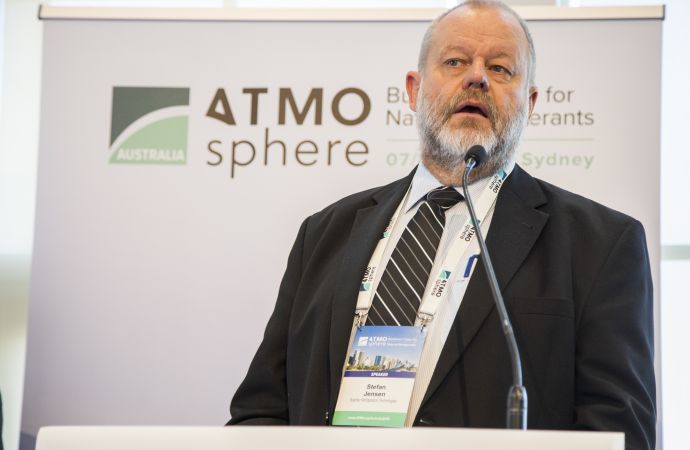A new report aims to support African countries in identifying priority areas for the successful implementation of the HFC phase-down under the Kigali Amendment to the Montreal Protocol.

Near Cape Town, South Africa
A report on ‘Africa and the Kigali Amendment’, produced by the United Nations Industrial Development Organization (UNIDO) with the support of the government of Italy, aims to help African countries in identifying priority areas for the successful implementation of the HFC phase-down under the Kigali Amendment to the Montreal Protocol.
Francesco La Camera, director-general for sustainable development, energy and climate at the Italian Ministry of Environment, Land & Sea, wrote in the report, “the scope of the present work is to hear the voices of African countries, and to identify their specific needs, concerns and challenges in effectively implementing the Kigali Amendment”.
The introduction of environmentally friendly solutions will allow the Parties to comply with the downstream obligations under the Montreal Protocol.”
– Francesco La Camera, Italian Ministry of Environment, Land & Sea
“The demand for air conditioning and refrigeration is constantly growing, particularly from developing countries. The introduction of environmentally friendly solutions will allow the Parties to comply with the downstream obligations under the Montreal Protocol,” La Camera stated.
Challenges cited in the report – presented by international natural refrigerants expert Nina Masson at the 29th Meeting of the Parties to the Montreal Protocol (20-24 November 2017) in Montreal, Canada, focused on African countries’ reliance on second-hand imported residential air-conditioning and refrigeration equipment and the lack of infrastructure to make its own equipment.
African countries are in the developing-country (Article 5) pathway of Kigali and will only start phasing down HFCs by 10% in 2029, while developed (non-Article 5) countries like Australia, the USA and EU member states will start in 2019.
“As a consequence, product strategies adopted by major RAC exporters – in China, Japan, Europe or the USA – have a decisive impact on the adoption of low-GWP technologies,” the report notes.
Masson, who was lead author on the report, said there is an infrastructure of RAC associations and training institutes in most African countries, describing it as a “stable basis for raising the skills level of the RAC sector and policymakers”.
African policymakers will need help constructing the regulatory framework necessary for Kigali, support in adopting low-GWP substances and technologies, and help from the Multilateral Fund (a Montreal Protocol fund for installations that harness sustainable refrigeration and air-conditioning technologies), the report argues.
A lack of available low-GWP refrigerant-based equipment “poses a strong challenge to African countries,” according to the report.
The use of carbon dioxide should be really common compared to what it is right now. In my country, we have it as a byproduct from one big project of extracting methane gas and I was wondering why we have to always import instead of using what we already have.”
– Juliet Kabera, Rwanda Environment Management Authority
“It’s very obvious we have a lot of alternatives,” notes Juliet Kabera of the Rwanda Environment Management Authority in the report. “The use of carbon dioxide should be really common compared to what it is right now. In my country, we have it as a byproduct from one big project of extracting methane gas and I was wondering why we have to always import instead of using what we already have.”
Countries should therefore not only start exploring existing sources of propane, CO2 or ammonia as byproducts from industrial processes to refine them as high purity refrigerants, but should also build a regional supply chain for sustainable refrigerants. A plant in Nigeria is about to start producing propane refrigerant, to reduce dependency on hydrocarbon imports from Europe or China.
It is easier to switch to some technologies than others. “Converting domestic refrigeration to low-GWP (mostly R600a) will be rather easy,” said Masson.
The report notes, “trends indicate that by 2020 around 75% of the domestic refrigerators on the global market will be equipped with R600a”.
Many projects have also been implemented by UNIDO, an implementing agency of the Multilateral Fund of the Montreal Protocol, for training “on alternative refrigerants in Eritrea, the Gambia, and Tunisia”.
The report also covers how Africa will face up to the Kigali requirements and pay attention to literacy and training, energy efficiency, partnerships between public and private bodies, socio-economic effects, gender balance, and technical specifications.
A French version of the report will be available in early 2018, to reach all African policymakers.
Related stories



